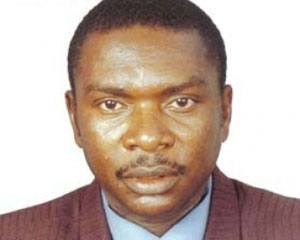
THREATS of possible United Nations Security Council action against Zimbabwe forced the government to launch a manhunt for Protais Mpiranya, a former top Rwandan official accused of taking part in the 1994 genocide, it has emerged.
PATRICE MAKOVA, THE HAGUE, NETHERLANDS
After years of denial, Zimbabwe recently admitted that Mpiranya, who is wanted by the United Nations’ International Criminal Tribunal for Rwanda (ICTR), was most likely hiding in the country.
Failure to co-operate with the tribunal could lead to the UN imposing sanctions and other measures against the country.
US ambassador-at-large of the Office of Global Criminal Justice, Stephen Rapp told The Standard at the on-going 11th session of the Assembly of State Parties of the International Criminal Court (ICC) on Friday that the ICTR prosecutor was forced to report Zimbabwe to the UN Security Council in June this year due to non-co-operation by the government.
Rapp, who is also in charge of the United States “Rewards for Justice” programme, which is offering a US$5 million incentive for the arrest of Mpiranya, said Zimbabwe was obliged to co-operate with the Rwandan tribunal since it was a creation of the UN.
“Since the prosecutor [Rwandan tribunal] complained to the security council in June, Zimbabwean authorities are now working with the tribunal. I hope full co-operation will be established soon,” he said.
Rapp said the prosecutor had “strong” information that Mpiranya has been hiding in Zimbabwe for many years now.
- Chamisa under fire over US$120K donation
- Mavhunga puts DeMbare into Chibuku quarterfinals
- Pension funds bet on Cabora Bassa oilfields
- Councils defy govt fire tender directive
Keep Reading
“These leads need to be developed to determine whether he is still there,” he said.
Rapp warned that Mpiranya was a security threat as the genocide suspect had a destablising factor wherever he went.
He said although not much was being said about him, as commander of the Presidential Guard in 1994, he played a key role in the massacre of an estimated 800 000 ethnic Tutsis and moderate Hutus.
“It is the presidential guard that began the killing on the morning of April 7 [1994], including that of moderate Hutu President Juvénal Habyarimana and others actors (including President Cyprien Ntaryamira of Burundi),” Rapp said.
He said this was the catalyst to the genocide that left nearly a million dead. Rapp said Mpiranya was later involved in civil wars in the Democratic Republic of Congo. “He is the kind of individual that continues, to cause problems if he gets an opportunity, so it is important that he be brought to justice,” said the US ambassador.
He challenged Zimbabweans to take up the issue of the US$5 million reward seriously, adding they stood to financially benefit from the arrest of the fugitive.
Police recently said Mpiranya could be using aliases Theophase Mahuku or James Kakule.










